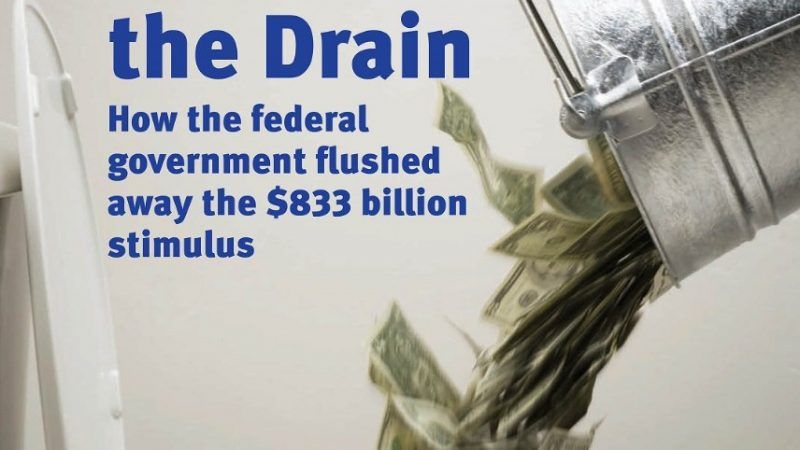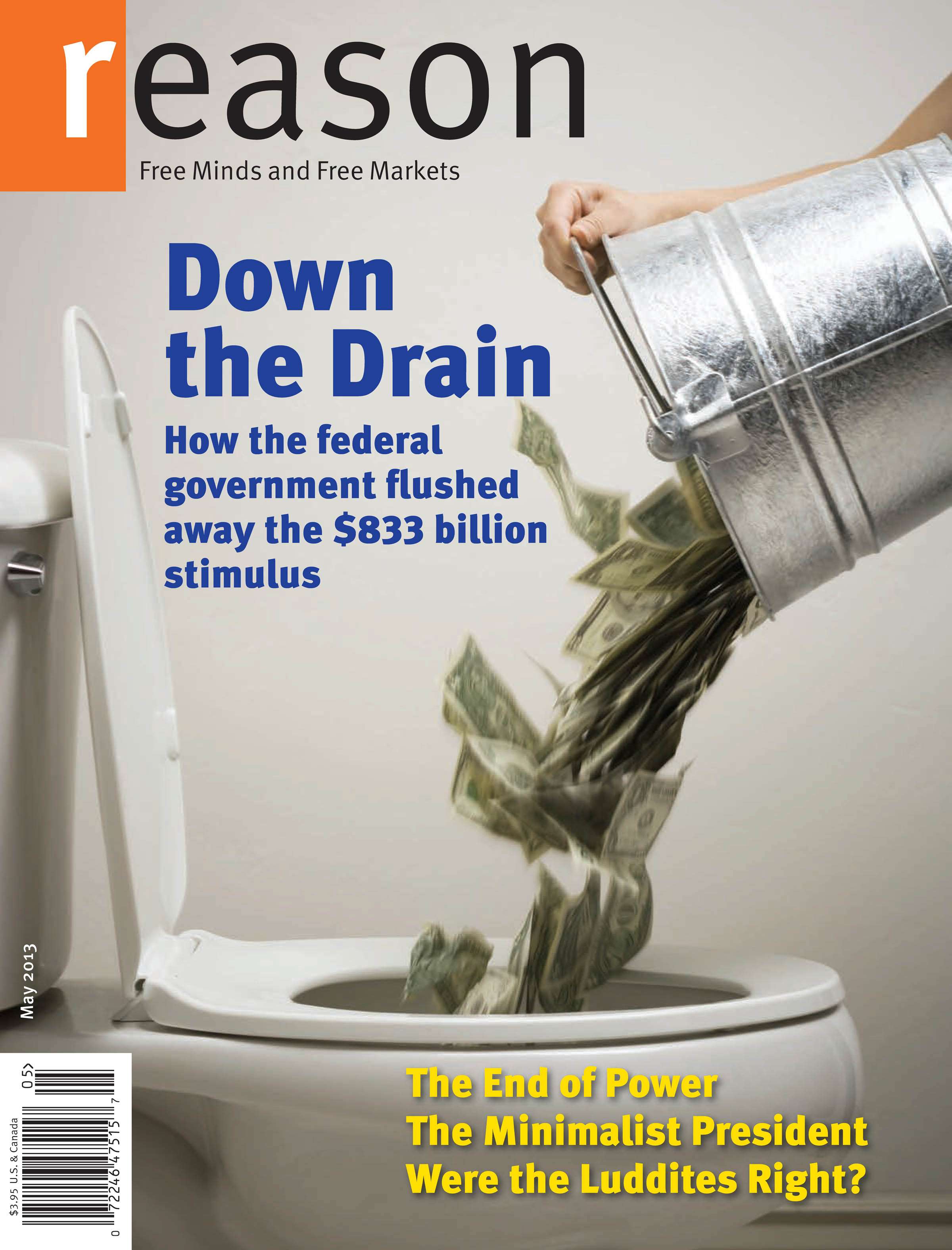'The New Center' Is Full of the Same Old Worship of a Powerful Federal Government
This is not the antidote to Trump. This is not an "alternative" to anything.


Bill Kristol of the conservative Weekly Standard and William Galston of the more liberal Brookings Institution have teamed up to explore what "the center" of politics looks like in an era of President Donald Trump. They've just released the results in a report called "Ideas to Re-Center America."
The concept should be familiar by now—some guys on both sides think that what will fix our polarized America is a path right down the "middle" of American politics. Kristol told The Washington Post that the process of writing the report made him discover "there was more being missed by Republican politicians and think tanks than [he] realized."
So what does this new middle look like? Well, apparently Joe Average is really, really angry about Chinese theft of intellectual property.
Wait, what?
"The New Center" cares so much about intellectual property theft and patent reform that it's one of the seven major planks of its platform. Read this policy proposal and ask yourself if it sounds like Main Street populism or if it sounds like the work of some think tanks and lobbyists with a vested interest in certain outcomes:
Tariffs are the nuclear option of international trade and can spur a counterproductive trade war. But China and other countries must understand there are real consequences for violating U.S. intellectual property protections. Two measures passed by Congress in the 1970s—Section 301 of the Trade Act of 1974 and the International Emergency Economic Powers Act—provide the president broad latitude to investigate trade practices that are harmful to the U.S. and to impose sanctions.
I'm sure there's absolutely no self-interested parties in Washington, D.C., who recommended to Kristol and Galston that they include this bit:
In 2011, Congress passed the Budget Control Act—commonly known as the "sequester"— which slashed discretionary spending across the federal government, with little consideration for the effectiveness of affected programs. Economic returns from basic government research are so significant—with a $1 investment in basic government research spurring over $8 in additional industry investment—that Congress should restore and increase basic research funding.
Setting sarcasm aside (briefly), the entire report reads like it was written by Beltway professionals, and Kristol acknowledges to the Washington Post that it's where many of these ideas came from.
Let's not necessarily talk smack about think tanks. The libertarian Cato Institute was consulted for this report (and of course, Reason Foundation is a think tank that publishes this very blog and pays me).
But this is the "No Labels" shtick. It sells technocratic management of citizens' lives as some "moderate" alternative to the left and the right, but it's still big government controlling what people can do and ignoring side effects that lead to corruption. Consider the abuse potential on this recommendation on skills training:
In early 2017, there were 6 million job openings even as 6.8 million Americans were looking for work. This is a stark reminder that too many Americans don't currently have the skills employers need. One way to fix this imbalance would be for the federal government to make more of its educational funding (e.g. Perkins loans) conditioned upon students pursuing majors in areas where there are projected future job shortages.
Who would be projecting these future job shortages and who will be lobbying for certain recommendations? An instructive warning: The economic stimulus plans pushed by President George W. Bush and supported by President Barack Obama created a land rush in the Southern California desert to develop dozens and dozens of solar energy projects. A small number of solar plants did get built. Many more did not.
Meanwhile, colleges were flogging solar energy job training programs for all the many openings these solar plants were going to provide. Then they didn't happen (and even when they did, solar plants do not require significant numbers of employees compared to other types of power pants).
We're not even getting into the whole Solyndra affair. The government thumb on the scale distorts the market, and that should make people wary about the government projecting where jobs are going. It's not a neutral arbiter. It has enormous power—far too much power—over how jobs get created. And with colleges so dependent on government funding, we end up in what's pretty damned close to central planning of the work force as the "centrist" alternative to the left and the right.
Not all of the report's contents came from lobbyists or think tanks. Here is the report's "solution" to young adults not being in the work force:
In 2015, more than one of every five American men without a college degree was both without work and not looking for a job. What are they doing instead? One study found that roughly three-fourths of their time is spent staring at a screen, including an average of nearly nine hours per week playing video games.
Even if these individuals are not "mooching" off anyone else, social science suggests that the failure to contribute correlates with a whole variety of pathologies, including drug use, divorce and depression. The New Center should not be bashful about criticizing individuals who are not carrying their weight.
Hey guys, that's not a "solution." This is what's known as "bitching." Peter Suderman had a different, less cranky-old-man take on this phenomenon in a recent issue of Reason magazine.
I would add that we also should not assume that these gamers are not contributing to the economy. Many of these young men stream their gameplay online and have developed an audience that earns them advertising income. Also of note, YouTube (owned by Google) and Twitch.tv (owned by Amazon) are the major platforms by which these guys make money off gaming through ads. But this report ponders bringing antitrust actions against those companies, leaving an observant person to wonder what might happen to those gamers' revenue streams.
Also fascinating: Pretty much every solution in the report's section on tech monopolies is based on bringing the hammer of government down on these companies. There is very little analysis of whether the government itself makes it harder for competitors to challenge major tech firms.
In the growth section, the report worries that manufacturing jobs are being replaced by low-wage service jobs. Yet one of its solutions is to increase the minimum wage, which will kill jobs in many non-urban economies that don't have diverse workforces. And then there's this utterly inexplicable component in the middle of the "solutions" intended to create more growth for citizens:
Each year, the federal government spends billions of dollars on basic research funded across a whole range of agencies. The products and services that emerge from those initial investments are frequently commercialized by private profit-making companies. But while the private sector benefits when a technology like GPS becomes a commercial success, the taxpayers who financed the original research rarely see any return. Government-funded research should not be predicated on the possibility of income. But when there is a commercial success, the original investor (the taxpayer) should get some portion of the upside.
Here's the return for the taxpayers: They get cheap or even free GPS. Don't take this as an endorsement of federally funded research. But think about the outcomes of this "solution." First, Joe Average would have to pay more for products and services that incorporate these innovations. Second, if this solution involves some sort of tax or payment back to the government, it is most certainly not going back to the taxpayer. It's going to go back to the various agencies and colleges responsible for the government-funded research. So in this "growth" section, one of the solutions would result in citizens paying more for stuff with they money going back to the government.
Remember that call elsewhere in the report for an increase in federal spending on basic research? Interesting how this all comes together.
It should be abundantly clear that this report's claims to present "bold new ideas" are total nonsense. The report is just a new effort to sell old ideas that often originate from people with a vested interest in seeing the size and scope of government expand. To see for yourself, read the report here.


Show Comments (12)